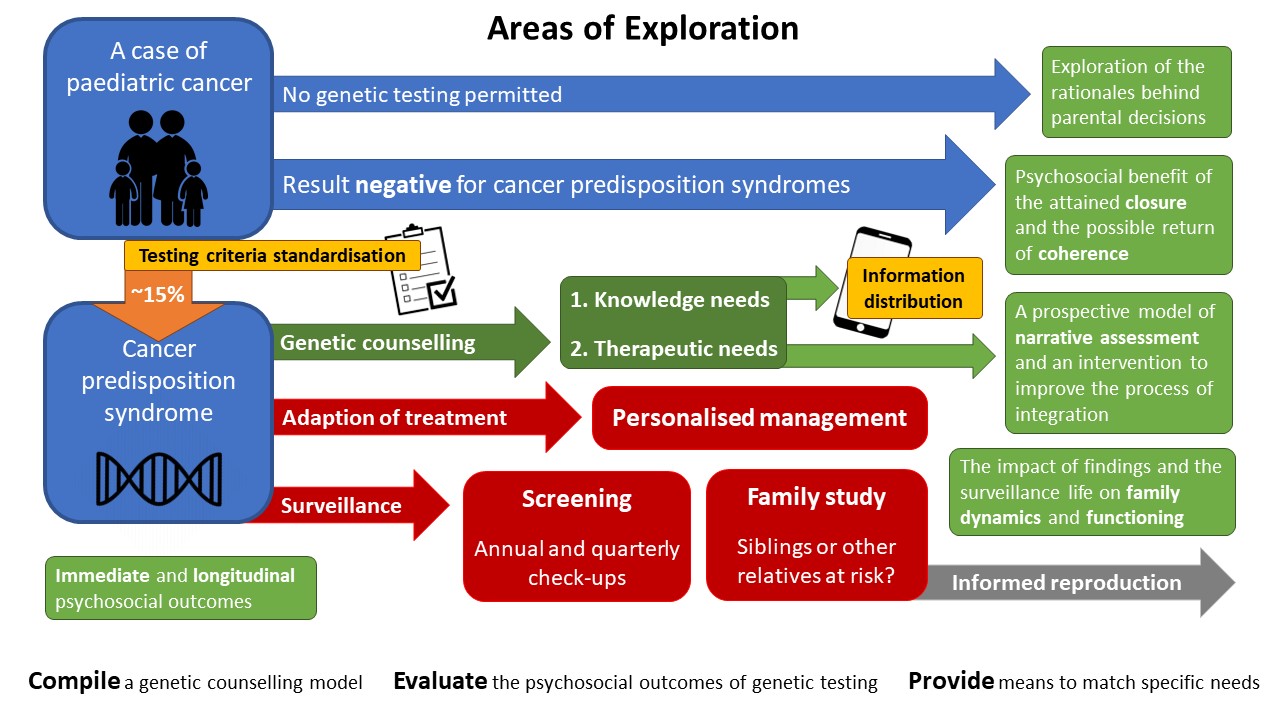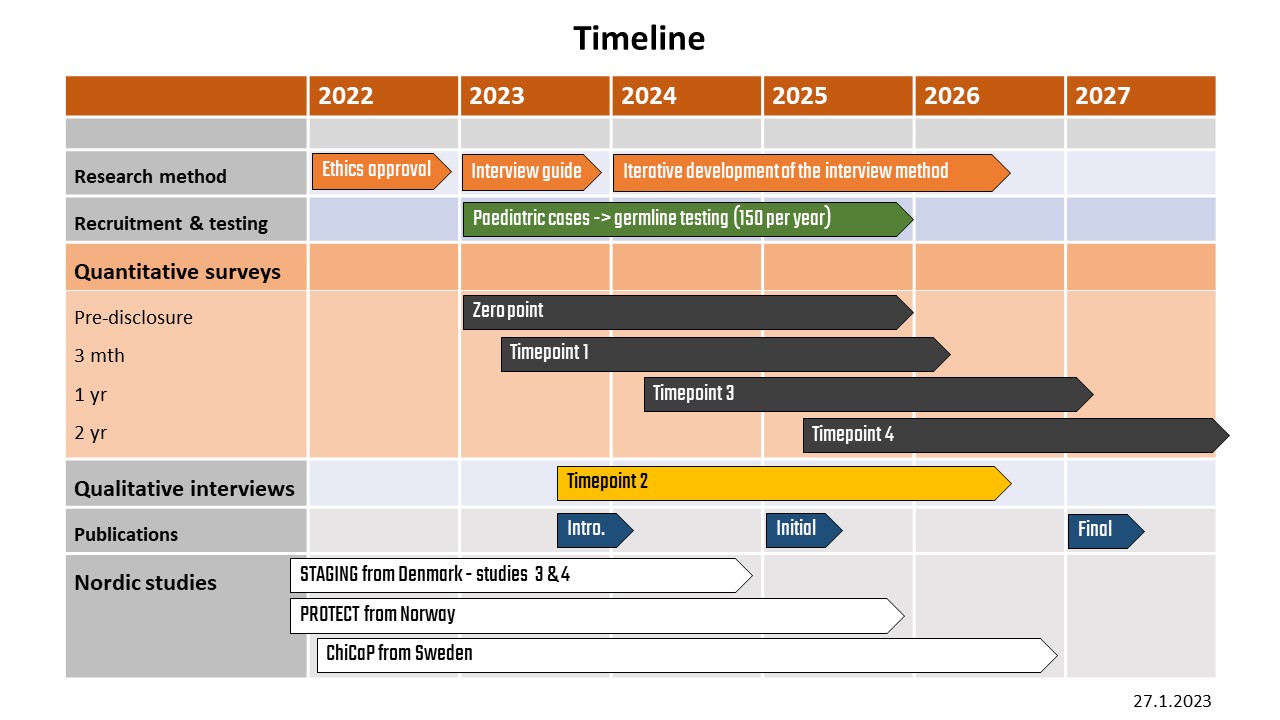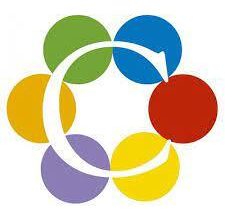Introduction
About the Study
Every year in Finland, around 150 children under the age of 16 and around 80 young people aged 15-19 are diagnosed with cancer. We seek to enroll 30–50 families each year, some of whom will receive a diagnosis for cancer predisposition syndrome. We collect data on quality of life, well-being, and life satisfaction throughout the following two years to understand the psychosocial outcomes of testing.
This prospective clinical study aims to investigate how parents experience and perceive genetic testing performed on their children. We recruit families who have been referred for genetic studies. Sometimes a genetic predisposition to cancer can be found even if these tests are not performed due to a cancer diagnosis. The study focuses on information needs, longitudinal psychosocial effects, sense-making and integration, standardisation of testing, and the advancement of genetic counselling. This is a nationwide translational project, involving pediatric haemato-oncologists, geneticists, psychologists, and bioethicists. The project involves all Finnish university hospitals, and recruitment will take place between 2023 and 2026.
To contact us about the project, please email us at peccaps@utu.fi
For Parents
Below is the information sheet given to parents who are considering taking part in the study, and a lighter version for explaining the study to children:
Our Finnish site includes useful links for those taking part in the research, considering it, or otherwise interested in it. Material includes articles on hereditary cancer and links to peer support groups.
For researchers
Infographics
Enlarge the graphs by clicking them.
Research instruments of the survey form
The last three are only included in the pre-interview questionnaire
| Family Assessment Device (General functioning) | Structural and organizational properties of the family |
| The Symptom Checklist | Symptoms of anxiety |
| Beck Depression Inventory | Depression |
| Warwick-Edinburgh Mental Well-being Scale | Mental well-being |
| Satisfaction with Life Scale | Life-satisfaction |
| EuroQol Group; EQ-5D-5L | Health-related quality of life, self-assessed |
| EuroQol Group; EQ-5D-Y | Health-related quality of life, adult’s assessment of the child |
| Precision in Pediatric Sequencing Knowledge Questionnaire | Knowledge about heredity and genetic susceptibility to disease |
| Multidimensional Impact of Cancer Risk Assessment | Different impacts of disclosing genetic test results |
| Impact of Event Scale | Post-traumatic symptoms |
| Reconstruction of LIFE-events questionnaire (Modified for genetic counseling) | Contingency, interpretation, meaning-making, and narrative integration |
| Existential Quest scale | Flexibility of worldview |
| Sense of Coherence scale | View of life and coherence as a psychosocial resource |
Website and illustrations created by Joel Janhonen.





